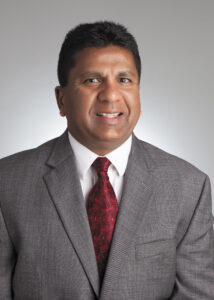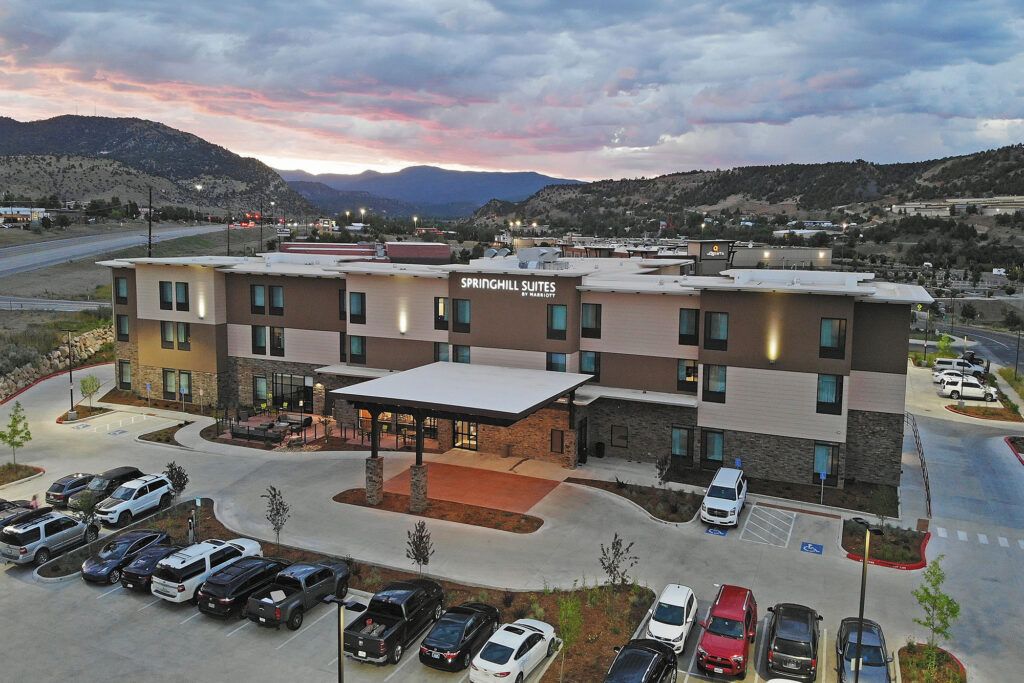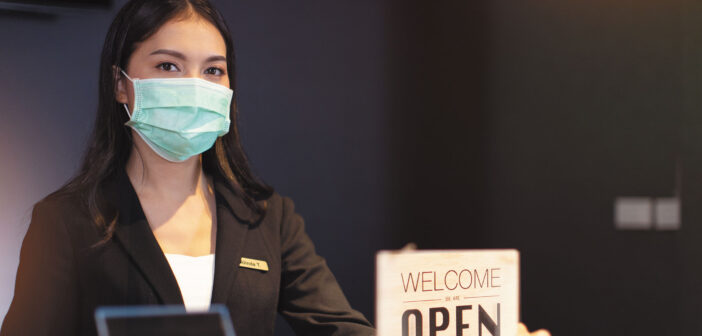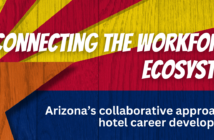The long-reaching impact of COVID-19
by FIONA SOLTES
Many hoteliers will remember 2020 as the year they fought to keep doors open. Hoteliers learned anything can happen and that it can happen fast.
THE EFFECTS OF DISRUPTION
From consolidating properties and cross-training staff, hoteliers have had to learn to operate to perform at maximum efficiency. Cleaning and sanitization protocols had to change and those changes had to be obvious to guests by using social distancing markers, hand sanitizing, wearing masks, and more. These additional efforts have been crucial for hoteliers in recent months, whether at new properties or established ones. The costs have been significant; the lessons learned, steep. And the time has come to start asking how much of it will stick long term.

Imesh Vaidya, CEO, Premier Hospitality, AAHOA Southwest Regional Director
LONG-TERM PREPARATION
Imesh Vaidya, AAHOA Southwest Regional Director and CEO at Premier Hospitality, a hotel management and construction company in Albuquerque, NM, has a variety of brands in his portfolio, including nine properties in multiple states. Holiday Inn Express & Suites, Quality Inn & Suites, Hampton Inn & Suites, La Quinta Inn & Suites, and SpringHill Suites are all on the list; some have been more aggressive with requiring practices and equipment than others.
Across the board, Vaidya said, his company made it known to staff that “if you’re not at the hotel, our guests are not being taken care of. And if they’re not being taken care of, none of us are here. We’re not in business. So, let’s take care of each other, and let’s make sure we’re safe, and we can get through this reasonably unscarred.”
Vaidya said the hardest lesson to learn was that employee apprehension had to be managed in addition to expenses without sacrificing livelihoods. “Most of the hospitality industry has reduced hours, which was unavoidable,” he said. “Many of us have tried to keep our staff gainfully employed without issuing layoffs. Obviously, if we don’t have hours, we don’t have hours.”
COMMUNICATING MOTIVATION AND SAFETY
But it also has been challenging – and necessary – to keep staff motivated and feeling safe, Vaidya said. In the early days of the pandemic, “the best thing we could do was to ensure that the safety of our team was more important than anything else. Whether that was purchasing the PPE, or putting up dividers, or letting them stay home if they chose to, we were flexible in everything they required. Once we were able to get the PPE, and once they knew how much we emphasized their safety, it became a much easier task to have them come to work and not be as nervous.”
Overall, his properties included about 150 staff pre-pandemic; that hit a low of 76 in April, and most who left did so because of family obligations, school, or other reasons. “Anyone who wanted to stay, we tried to keep them at least at 75 percent of their hours,” he said. As of December 2020, the staff was back to 136.
Amid this stressful time, Vaidya has honed his management and communication skills. And he has learned the importance of building and maintaining positive relationships with banks, franchisors, and local and state government. He fully expects that to continue post-pandemic. He also believes he will stay stocked on PPE as a regular expense, understanding that “this could happen again.” Another mile marker: building reserves back up to pre-pandemic levels to have them on hand.
The industry will have to be increasingly flexible by adopting new technology and managing all revenue streams. Getting involved with your local chamber of commerce has never been more important than it is now.

Vaidya’s properties went from 150 staff to 76 in April 2020 because of the COVID-19 pandemic. “Anyone who wanted to stay, we tried to keep them at least at 75 percent of their hours,” he said.
RESPONDING TO THE PANDEMIC
Many have been surprised by the slow response from Congress for small business. The government’s inability to finalize a stimulus deal until so late in the year 2020 has seriously affected the hotel industry’s health.
On the other hand, organizations and communities have come together to support businesses.
Vaidya believes consumer expectations for cleanliness will continue post-pandemic – and both would be happy for masks to eventually stop being necessary so full smiles can be on full view.
John Henshaw, MPH, CIH, speaking on behalf of the American Industrial Hygiene Association (AIHA), also believes heightened consumer expectations of cleanliness and sanitation will continue. “They will expect better ventilation, more air changes, and fresh air and light and airy places to ensure they are clean and safe,” he said. That, and more outdoor seating for food service. AIHA has released a “Reopening: Guidance for Small Lodging Establishments” resource, available through its website at www.aiha.org.
There are definitely challenges for independent owners vs, larger operations, Henshaw said, such as a lack of technical staff to develop procedures and protocols and minimal staff to carry out those efforts. On the upside, however, being a smaller operation means being “better able, in general, to deliver regular and beneficial messages to guests.” Staff and owners can have more one-on-one time with guests and make that experience more personal.
And that, pandemic or not, won’t ever change.




